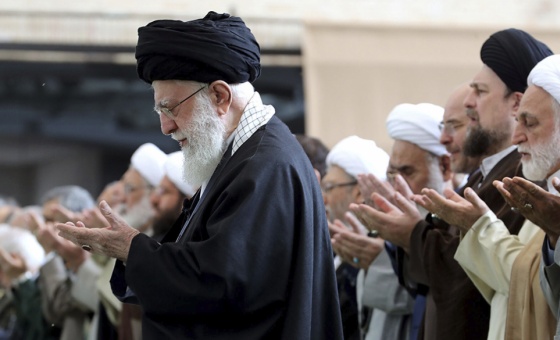This is the last article you can read this month
You can read more article this month
You can read more articles this month
Sorry your limit is up for this month
Reset on:
Please help support the Morning Star by subscribing here
LESS than a year ago, anyone taking a daytime train from London to Scotland had the option of Virgin Trains on the West Coast mainline to Glasgow, or, err, Virgin Trains East Coast up to Edinburgh. But by this time next year, Britain’s best-known private rail brand will be consigned to the dustbin of history.
Virgin Trains was built in the image of its founder Richard Branson, the upper class drop-out who became Margaret Thatcher’s “litter tsar” before he was touted as Tony Blair’s favoured candidate for mayor of London. But it was always a joint venture with Stagecoach, run by Branson’s fellow ghastly gongees Brian Souter and his sister Ann Gloag. Virgin Trains East Coast was in fact 90 per cent owned by Stagecoach — but cannily dined out on the Virgin brand.
And it was Stagecoach which sealed the company’s fate, after the government invalidated its bids for future rail franchises, saying they were not compliant with a new duty to take on more pensions risk. This demand is worrying news in itself, and at the RMT’s stations conference in Dunfermline on Friday 12, general secretary Mick Cash said it was a sign “we’re going to see them attack our pensions.” It could result in Britain’s first walkout covering all routes since privatisation.
Still, no-one, least of all the RMT, will miss Virgin.
For all its faults, the first private operator of the East Coast mainline, GNER, at least gained brand recognition for good reasons. It was the only franchisee to get anywhere near to the naive vision of John Major when he initiated privatisation — that is, that a return to “Big Four-”style pre-nationalisation companies would restore pride in the railway.
Under the rather patrician Chris Garnett, GNER’s branding echoed the golden age of steam, and the company massively expanded silver service restaurant cars — open to both first and standard class passengers. But GNER was just as prone to the fallacies of the franchising system as any other privateer. It became the first of three firms, the most recent being Virgin Trains East Coast, to hand back the keys early.
Virgin’s unrivalled recognition, however, has been built on its continuity since privatisation, the faux flamboyance of its plutocrat frontman, and a tissue of tacky tricks.
It was the first Intercity operator to replace its fleet, and for a moment echoed GNER in its marketing, with an effective promo film, The Return of the Train, which borrowed from multiple film depictions of the golden age.
But the Pendolinos and Voyagers that replaced comfortable and reliable, if tatty, locomotive-hauled rolling stock, are now among the worst trains in Britain.
Their toilets have been beset with problems, their interiors are cramped, and the much-vaunted tilting technology is, to put it charitably, a matter of taste. Yes, journey times have markedly improved — but at what cost? A standard class season ticket between Birmingham and London has gone up from £8,028 to £10,900 only since 2010.
And Virgin is expert at adding insult to injury. The company’s latest gimmick has been the “talking toilet,” which has made me convinced that Branson is emulating Ryanair’s strategy of publicity by means of outrage. It was bad enough to have a recorded lecture played at you, but it has now adopted a chatty persona which claims: “I used to be a public toilet, and let me tell you, this is a step up!” Funny that — while British Rail’s loos on the West Coast mainline plopped directly onto the track, they at least allowed you to pee in peace.
Let’s hope the end of Virgin will give us this privilege once again. But for as long as Britain’s railways are kept in private hands, operators will continue to deploy cynical marketing gimmicks at the expense of passenger comfort. When we finally end the madness of privatisation, let’s make sure we don’t fall into the trap of emulating the private sector, and instead shape our railway around passenger need, not just for tolerable conditions and lower fares, but for the comfort and romance that railway travel can uniquely offer.
- “WE’RE as old as the FA Cup,” Mick Cash noted at the RMT’s station grades conference in Dunfermline this weekend — noting that both organisations were founded in 1871. “And we’re just as cherished, aren’t we?”
It had been a pleasure to see his own team, Watford, beat Wolves in the FA Cup semis at Wembley last weekend, the RMT general secretary said. “We were 2-0 down until 80 minutes, and we finished at 3-2. You never give up. And that’s where we are as a union.”
- DUNFERMLINE also appeared as an answer in this week’s University Challenge, in reference to its former status as Scotland’s capital. There would have been little excuse for the team in question to have answered incorrectly though — they were from the University of Edinburgh.
- CAN we expect more outrage from the likes of the National, the Times and the New Statesman next week, over the fact that the Morning Star will once again be distributed free at a conference? Probably not — because many newspapers don’t send a reporter to the Scottish TUC, which begins in Dundee on Monday. Then again, that didn’t stop them at the Scottish Labour conference: while it was standing room only in the press room, the hacks who got huffy over this very standard event pilfered the story off keyboard warriors, of which at least two were no longer Labour members, let alone attending the event.
 Conrad Landin
Conrad Landin










